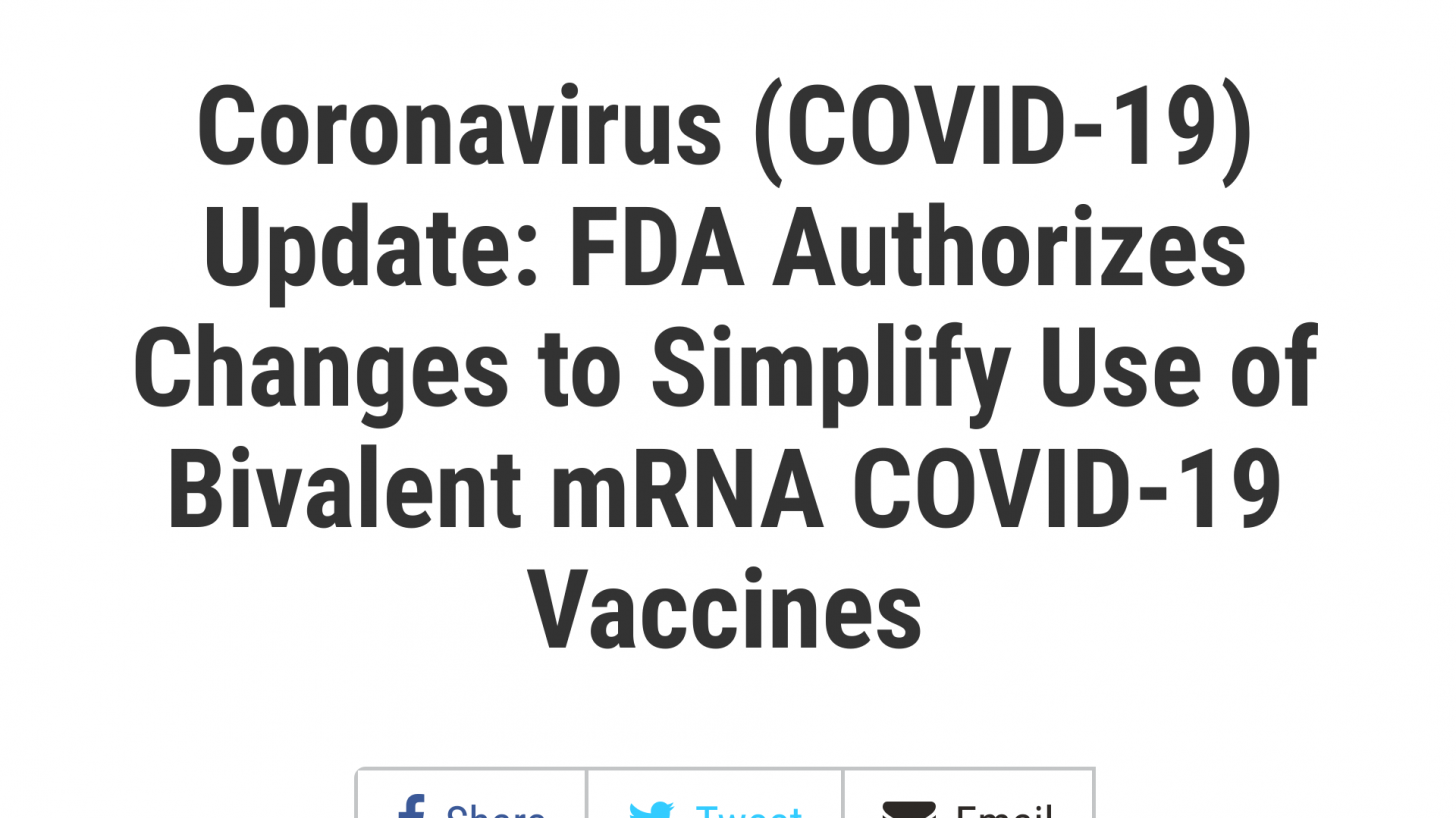COVID-19 mRNA Booster Authorizations Expanded

The U.S. Food and Drug Administration (FDA) today announced it amended the emergency use authorizations of the Moderna and Pfizer-BioNTech COVID-19 bivalent mRNA vaccines to simplify the vaccination schedule for most individuals.
This action on April 18, 2023, includes authorizing the current bivalent vaccines (original and omicron BA.4/BA.5 strains) for all doses administered to individuals six months of age and older, including for an additional dose or doses for specific populations.
Furthermore, the monovalent Moderna and Pfizer-BioNTech COVID-19 vaccines are no longer authorized for use in the United States.
"At this stage of the (COVID-19) pandemic, data support simplifying the use of the authorized mRNA bivalent COVID-19 vaccine, and the agency believes that this approach will help encourage future vaccination," commented Peter Marks, M.D., Ph.D., director of the FDA's Center for Biologics Evaluation and Research, in a related press release.
"Evidence is now available that most of the U.S. population five years of age and older have antibodies to SARS-CoV-2, the coronavirus that causes COVID-19, either from vaccination or infection that can serve as a foundation for the protection provided by the bivalent vaccines."
"COVID-19 continues to be a very real risk for many people, and we encourage individuals to consider staying current with vaccination, including with a bivalent COVID-19 vaccine."
"The available data continue to demonstrate that vaccines prevent the most serious outcomes of COVID-19, which are severe illness, hospitalization, and death."
What You Need to Know:
- Depending on age, most individuals previously vaccinated with a monovalent COVID-19 vaccine and who have not yet received a dose of a bivalent vaccine may receive a single dose of a bivalent vaccine.
- Most individuals who have already received a single dose of the bivalent vaccine are not currently eligible for another dose. However, the FDA intends to decide about future vaccination after receiving recommendations on the fall strain composition at an FDA advisory committee in June.
- Individuals 65 years and older who have received a single dose of a bivalent vaccine may receive one additional dose at least four months following their initial bivalent dose.
- Most individuals with certain kinds of immunocompromise who have received a bivalent COVID-19 vaccine may receive a single additional dose of a bivalent COVID-19 vaccine at least two months following a dose of a bivalent COVID-19 vaccine. After that, additional doses may be administered at the discretion of, and at intervals determined by, their healthcare provider. However, for immunocompromised individuals six months through 4 years of age, eligibility for additional doses will depend on the vaccine previously received.
- Most unvaccinated individuals may receive a single dose of a bivalent vaccine rather than multiple doses of the original monovalent mRNA vaccines.
- Children 6 months through 5 years of age who are unvaccinated may receive a two-dose series of the Moderna bivalent vaccine (6 months through 5 years of age) OR a three-dose series of the Pfizer-BioNTech bivalent vaccine (6 months through 4 years of age). Children five years of age may receive two doses of the Moderna bivalent vaccine or a single dose of the Pfizer-BioNTech bivalent vaccine.
- Children 6 months through 5 years of age who have received one, two, or three doses of a monovalent COVID-19 vaccine may receive a bivalent vaccine. Still, the number of doses that they receive will depend on the vaccine and their vaccination history.
The unedited FDA announcement is available at this link.
Note: The FDA did not include the non-mRNA Novavax COVID-19 vaccine in today's announcement.
Our Trust Standards: Medical Advisory Committee
























